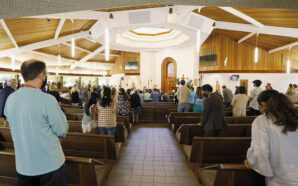Better Business Bureau
Have you recently received a survey in the mail asking questions about your household and transportation and transit routines? Were you afraid that it was a scam or attempt to steal personal information? If so, you’re not alone – and thankfully, you also have nothing to worry about!
Every five to seven years, the Federal Highway Administration conducts their National Household Travel Survey (NHTS), which provides the U.S. Department of Transportation and other local agencies with information about how the public uses transportation. Surveys will be mailed to approximately 130,000 randomly selected households, and the forms will be sent from March 31, 2016 through April 2017.
Those that are asked to participate will be sent a questionnaire from the U.S. Department of Transportation. It asks various questions about travel experiences, technology use, and household demographics; and the recipient is instructed to return the questionnaire in an enclosed, pre-paid envelope. If you receive something like this and want to make sure it’s legitimate, you can compare it to a sample of the questionnaire online at nhts.ornl.gov/2016/pub/recruitment.pdf. After sending in the questionnaire, households will be asked to answer a second set of questions online.
The last time that the NHTS was sent out, many consumers contacted Better Business Bureau (BBB) offices asking if it was a scam. This time, the Federal Highway Administration reached out to BBB with a reminder about the survey so that we can best assist consumers when they inquire about it.
Some people might have a gut reaction of “scam!” when they receive this survey. This may be because scams involving impersonation of the government and government officials are common: the IRS tax scam is one of the most popular scams out there, and reports of fraudulent “government grants” – that one has to either wire money or give away bank account information to receive – are common. Survey scams are also commonly reported. Emails containing “customer surveys” in exchange for rewards are often fraudulent, and may steal financial information or download malware on to your computer.
It’s smart to be wary of any unsolicited material you receive, whether it be through snail mail or e-mail. However, the NHTS is legitimate. If you’re randomly selected to take it, please do! As California, and especially the Bay Area becomes more congested, the government needs all the information it can get to figure out how to best meet the public’s needs.
Even the most educated and savvy consumer can get confused about what is, and isn’t, a scam. That’s what your BBB is for! It’s always better to be safe than sorry, and double checking never hurts. Email info@bbbemail.org, or visit our website, bbb.org, and someone will be happy to answer any questions you have. Looking at BBB Scam Tracker (bbb.org/scamtracker), can also give you an idea of scams happening in your area. According to BBB research, 80% of people say knowing about a particular scam helped them avoid an attempt. If you’ve encountered a scam, report it to BBB Scam Tracker to help warn other consumers and give a heads-up to BBB and law enforcement.






